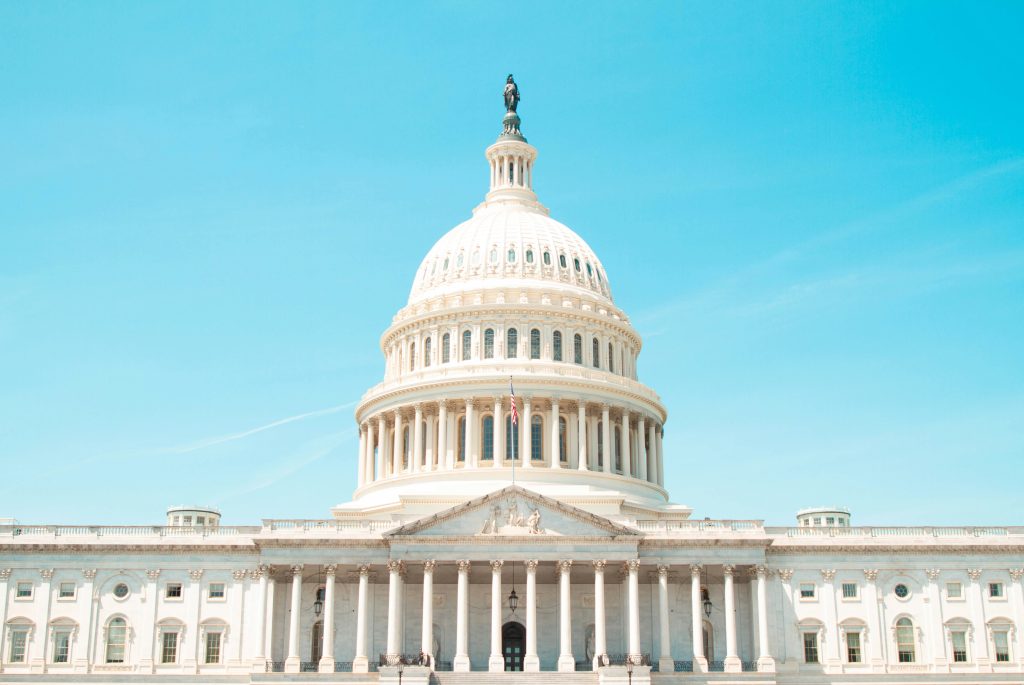Is another Trump administration bad for (green) business?

As we approach another pivotal moment in US politics, the 2024 presidential election, Donald Trump’s early success in the Republican primaries is sparking conversations about the impact of another Trump administration on sustainability initiatives.
As impact investors, we’re particularly focused on what the implications might be for Biden’s flagship infrastructure policy: The Inflation Reduction Act (IRA). Trump has expressed his opinion that climate change is a “hoax” invented by China to trick Americans into caring about environmental regulations. 1 He has also pledged to repeal the energy tax credits introduced in the Act on his first day in office. 2
Moreover, Trump’s administration is likely to attempt to withdraw from the
The Paris Agreement
Nonetheless, while a Trump presidency may not align with the aspirations of sustainably-minded investors, we believe concerns regarding the adverse implications for
Sustainability
What is the Inflation Reduction Act?
Inflation Reduction Act (IRA)
Importantly, the IRA is designed to be inclusive, extending benefits to lower and middle-income households. It offers tax incentives for buying electric vehicles and
Energy efficiency
According to Climate Power, the impact of the IRA has already been profound, drawing $278 billion in new private investments into the clean energy sector. 5 This influx of capital has not only generated 170,000 new jobs but has also enhanced national energy security by revitalising domestic manufacturing capabilities, including the production of solar panels. 6
Another Trump administration will want to create jobs and infrastructure
The IRA is most accurately characterised as an infrastructure bill, rather than solely a climate-focused bill. The Act is one of the Biden administration’s key pieces of legislation, alongside the CHIPS and Science Act, which boosted funding for the research and manufacturing of semiconductors in the US.
The IRA is strategically designed to foster job creation across states, irrespective of their political affiliations, underscoring a commitment to bipartisan support.
In fact, recent analyses reveal that Republican states (i.e. states with republican governors) have benefited the most from the Act, accounting for 80% of the projects in clean energy and semiconductor manufacturing. 7 This distribution suggests a potential shift in perspective among republican governors who originally opposed the Act, given its tangible contributions to job creation and investment within their jurisdictions.
Difficult to repeal at this point
The actual mechanics of dismantling the Inflation Reduction Act would entail a significant legislative challenge, which would require a new act of Congress for its repeal. History suggests that, even if Republicans win the presidential election and control both the White House and Congress come November, getting rid of all the incentives and credits that the IRA introduced won’t be easy now that they’ve been granted.
A clear parallel can be drawn with the Affordable Care Act (ACA), also known as Obamacare. The ACA was passed when the Democrats had majority control over Congress during President Obama’s first term.
Despite trying more than 50 times, 8 Republicans, even when they later controlled both the White House and Congress after the 2016 elections, couldn’t get rid of Obamacare. Their efforts to undo the legislative centrepiece of the Obama presidency fell short, which shows how difficult it can be to reverse legislation once it’s committed into law.
Renewable adoption continues to accelerate, with or without another Trump administration
Fundamentally, the ‘on-the-ground’ story in the US is positive for the energy transition. Despite Trump’s past hostility towards climate initiatives, there was notable growth in renewable adoption during his presidency.
For example, in 2016, the US wind industry grew by 10% and added 15,000 new jobs. 9 In 2019, $55.5 billion was spent on solar and wind projects, setting a new record in the US. 10 Also, the cost of making lithium-ion battery packs decreased by 89% over the past decade. 11 The cheaper production of these battery packs will make it easier for automakers to build and sell mass-market electric vehicles at a price accessible to more consumers.
These achievements in clean energy, among many others, happened not because of, but in spite of Trump’s presidency. This suggests that the power of the market and new technological advancements are pushing renewable energy expansion forward more than any political influence and noise.
This economic argument, which recognises the progression of renewable energy despite the intervention of political opinion, is particularly relevant today. Renewable energy sources like solar and wind have become the cheapest way to generate energy globally. 12 Between 2010 and 2022, the global weighted average cost of electricity from solar panels fell by almost 90% and is now one-third cheaper than the least expensive fossil fuel. 13
Cheaper energy is particularly appealing to voters after several years of high inflation caused by higher energy prices. The effects of climate change combined with the use of traditional energy sources can have an inflationary impact, meaning they can lead to higher prices for consumers. For instance, in Texas, energy prices shot up by 800% during a heatwave last summer. 14
You might also like: Where are we now? Revisiting the case for investing in renewable energy
At Tribe, our investment philosophy isn’t swayed by the uncertainties of binary market events like government elections. We focus on building resilient portfolios that we believe can withstand changes and continue to deliver both financial returns and positive impact over the long term.
As impact investors, a key focus for us is changing environmental policy, particularly regarding the Inflation Reduction Act. While it’s possible that parts of the IRA will receive some pushback from Republicans, we’ve been working to identify the sectors that’ll be net beneficiaries. For example, improving grid infrastructure is likely to have cross-party support. Furthermore, given the positive effect on jobs and infrastructure in both republican and democrat states, we believe a larger, wholesale repeal is unlikely.
The reality is that despite any potential political challenges, the momentum towards a sustainable future remains strong. The green transition is accelerating across the US, with opportunities for impact investors to play a pivotal role in shaping a more resilient world.
Footnotes
- Scroll to footnote
- Scroll to footnote
- Scroll to footnote
- Scroll to footnote
- Scroll to footnote
- Scroll to footnote
-
Republican districts dominate US clean technology investment boom, Financial TimesScroll to footnote
- Scroll to footnote
-
Wind Keeps Creating Jobs, Even as We Pull Out of Paris, Union of Concerned ScientistsScroll to footnote
- Scroll to footnote
- Scroll to footnote
-
Why did renewables become so cheap so fast?, Our World in DataScroll to footnote
- Scroll to footnote
- Scroll to footnote




